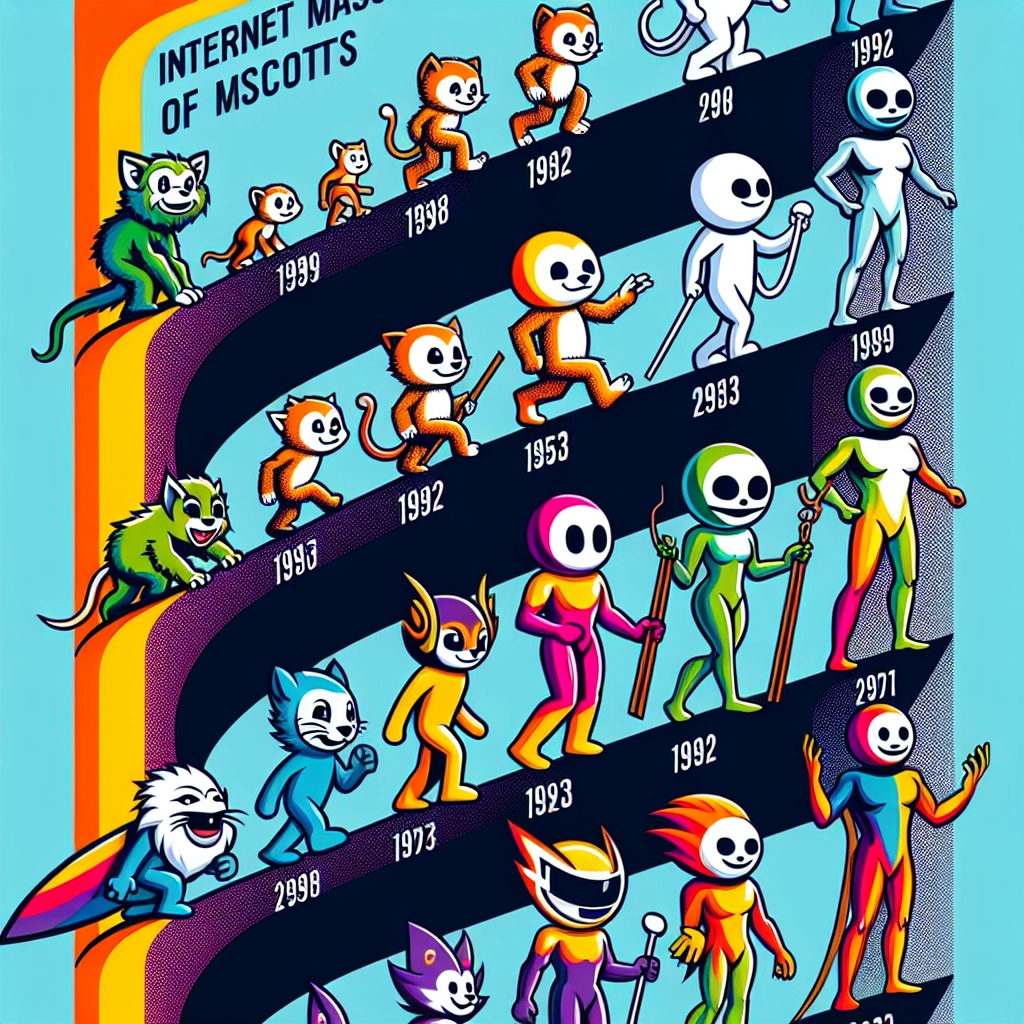Web design has seen a significant shift over the years, particularly in the use of mascots. Once a staple of branding that lent a fun and approachable vibe to companies, these quirky characters have largely faded from the scene. Instead, they’ve been replaced with minimalist designs that often feel sterile and devoid of personality. Startups that once embraced playful mascots now prioritize a serious image, leading to a loss of the charming, whimsical creatures that made the internet more enjoyable. It’s time to consider whether these mascots could make a triumphant return.
The Rise of Web Mascots
The trend of mascots in web design gained momentum with characters like Clippy from Microsoft Office, who, despite being annoying, set the stage for brands to adopt similar avatars to give products a more human touch. By the early 2010s, companies recognized that mascots could transform faceless tech into relatable brands. Icons like Freddie the winking chimp from Mailchimp and the Octocat from GitHub brought character to the digital experience, making brands seem more inviting and less intimidating.
These mascots were more than just visual flairs; they were helpful tools that enhanced user experience (UX). They greeted users, guided them through processes, and provided a sense of engagement that made navigating online interactions feel less mechanical.
The Decline: A Shift to Minimalism
However, as design trends evolved, mascots started to diminish. By 2020, many startups had ditched their quirky characters in favor of sleek, minimalist branding that emphasized a “serious” aesthetic. This shift was driven by several factors:
- The Minimalism Trend: The rise of flat design favored clean aesthetics over individuality. As brands sought to establish themselves as sophisticated, unique personalities were often seen as liabilities.
- The Pressure to Appear Professional: As startups sought funding and credibility, they aimed to look more enterprise-ready, moving away from the playful mascots that had previously defined them.
- Challenges with Scaling Mascots: What worked for a small startup was harder to market for larger corporations, making mascots less viable as businesses grew.
- Generic Corporate Illustrations: The prevalence of stock vector illustrations diminished the uniqueness of brands, prompting many to abandon mascots for safer, more conventional designs.
What We’ve Lost
The impact of this transformation is evident in the uniformity of modern web design. With everyone adopting similar fonts, color schemes, and corporate illustrations, technique and personality have suffered. The lively interactions once offered by mascots have been replaced by bland, emotionless progress bars and screens—an unfortunate evolution for user experience.
Gone are the days when Slack would entertain users with quirky loading messages. In their place is a stark and impersonal interface. While mascots weren’t without their flaws, they added character and made user interactions more enjoyable.
A Flicker of Hope for Mascots
Despite the dominant trend of minimalism, a few companies are still keeping the mascot spirit alive. Duolingo’s animated owl continues to motivate users with its quirky threats, while Notion has sought to revive charm with the introduction of Blobby, its playful cube character. Even Google occasionally injects fun through playful doodles.
This suggests that there’s still room for mascots in design. As the industry grows weary of sterile corporate uniformity, perhaps some brave startup will embrace the whimsical nature of mascots once again, proving that personality in design can coexist with professionalism.
In a world leaning heavily towards soulless gradients and AI-generated avatars, let’s hope we see a revival of the lovable mascots that once made the web uniquely delightful.
Welcome to DediRock, your trusted partner in high-performance hosting solutions. At DediRock, we specialize in providing dedicated servers, VPS hosting, and cloud services tailored to meet the unique needs of businesses and individuals alike. Our mission is to deliver reliable, scalable, and secure hosting solutions that empower our clients to achieve their digital goals. With a commitment to exceptional customer support, cutting-edge technology, and robust infrastructure, DediRock stands out as a leader in the hosting industry. Join us and experience the difference that dedicated service and unwavering reliability can make for your online presence. Launch our website.

